Rexorcist's Forum Replies
My phone died from "complications during a fall." So did freaking Ace Frehley. Except we can't pay nearly 200 to bring him back. Gonna miss him.
Anybody check out the new Coroner yet? if that's what they sound like when they're out of practice, what kind of insane monster of total thrash energy will we get when they get back on track?
Going on a Thy Art Is Murder marathon right now. "The Adversary?" Uber generic in practically every way. Almost everything is totally middling. 52/100. Going on Hate right now, and I'm quite impressed with the upgrades in the riffs and the usage of the second vocal style. It's a bit more thrashy but loses none of its death metal edge.
My mother just gave me a stack of Aldous Hunxley books to read through, even though I just bought Mystic River, Timeline and The Stand at Goodreads with a birthday giftcard. So I'm gonna speedread one Huxley a day if I can and then send each one back to her. She wants to get through them once I'm done.
Mystic River has fantastic prose and excellent characterization. But the first act is a very slow drag that the movie thankfully fixed. Might've been perfect if it had a better soundtrack.
I loved The Stand, but I haven't read it in donkey's years. Maybe it's getting time for a revisit. I do like the Mystic River movie but I haven't read the book. Is Timeline a Michael Crichton book?
Yeah, but not one of his best. Every villain in the medieval ages is pretty much the same character: "I freak out and accuse you of lying because I can't handle that I'm someone in power who's being told he's wrong." Honestly, I'd rather have lunch with Trump. Yeah, these guys are more annoying that Mr. You're Fired.
Dario Argento marathon for the time being, while working on the second part of my Wings of Nialoca series and speedreading The Stand at roughly 200 pages a day, on top of one shorter novella to help with the speedreading challenge I've been slacking off on. Once I'm done with Argento, I think I'll move onto Lars Von Trier.
WHOA.
https://m.soundcloud.com/david-chavers/evil-dead-666
JUST WHOA.
I met these guys at a Swans concert. I'be heard a lot of demos and ep's by small time metal and punk bands, and I got into a conversation with them before the show started. I mean, the place was loaded with post+rock t-shirts and potential RYMers, so when these guys told me about their band and said they wanna diversify, I figured I'd check these guys out. Now that I have, I repeat... WHOA.
Now lyrically, the overly violent stuffs been done a million times. Evil Dead worship is cool, though. But that ability to shift and mutate like it's nothing is impressive. Good riffage, good voices, these guys deserve some credit. Hope they get an album out.
Bro, treading some reviews in an effort to grasp an inkling of why this album gets any kind of slack, I found that Sodom fans consider this a disjointed work in comparison to the classics. And to that, I say, "Check out Thembi and call me in the morning." If you ask me, this whole albums feels the way I've been asking it to feel, a largely consistent vibe that shows the band trying to expand. I came into this expecting anything from 60-80 / 100, but I'm not gonna lie, I'm in the rare came again, the Prometheus / Tauhid / Fulfillingness' First Finale / no better EDM than FSoL camp: this is better than Agent Orange. They're doing what they can to put out another real Sodom album while trying to expand their horizons, and they largely succeed. This album has tricks up its sleeve that I wished Agent Orange would even simply try to attempt.
At the time of writing this, I've given this album its highest rating on Metal Academy: 92/100 = 4.5 stars.
You're the first person I've ever seen agreeing with my position that "Better Off Dead" was the best Sodom release to the time.
Damn, we're all alone. Freakin' Tom Hanks and Wilson.
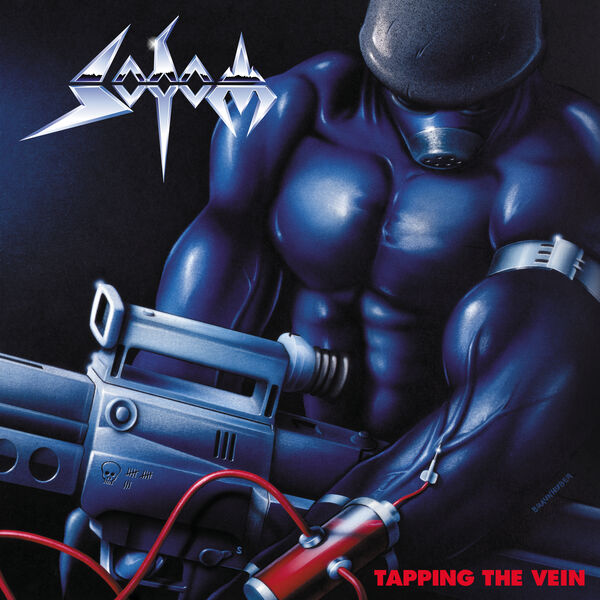
Sodom - Tapping the Vein (1992)
Genres: Teutonic Thrash
Okay, I really wasn't expecting such an awesome blast of deathened thrash. Instantly, I'm punched in the face harder than anything Pantera's capable of. The production, energy and sound are freaking incredible! But upon this first track also came concerns that this album would be a one-trick pony. Of course, track 2, Skinned Alive, is by all respects a death metal song, which is fine, but not exactly diversification. While the album was exceptional in the heaviness department, I was really hoping the third track, being five minutes, wouldn't rely on it, and I got what I wanted for the most part. Its slower rhythm still has that simple monotone sound you'd expect from a typical Sodom song with the extra heaviness to back it up, but things pick up once the solo kicks in. For the most part, the album switches between different levels of heaviness, and usually, the heavier they are, the less rhythm and melody will be involved. Some songs switch between tempos and levels of heaviness, like the title track, but that's the artisiest the album gets. SO while the heaviness certainly does give it some big points, the lacking songwriting ability still needs to be addressed.
77
Sodom - Better Off Dead (1990)
Genres: Teutonic Thrash
Prepared for a fun album rather than a great one, I think I ended up getting both. This has plenty of thrashing, but above anything else, it's multiple kinds of fun, the spirited kind that defines the album like a Zappa one, rather than the general kind that tries to justify the existence of an otherwise undercooked movie, like Kung Pow. Now one thing that disappointed me about Agent Orange was the glaring inferiority of the band's attempts at straightforward heavy metal in comparison to their thrash works. But here on Better Off Dead, songs like their cover of Thin Lizzy's Cold Sweat prove that they finally got a grip on this. They're making fun, catchy songs of various kinds, leaving room for some raw thrash material such as Shellfire Defense and Bloodtrails. Thing is, in place of the occasional blackened influence of previous efforts, they included some more obvious attempts at melody, and this helps differentiate the album from previous efforts while still managing the Sodom spirit. I mean, hell, Shellfire Defense is Agent Orange material, and if you're a classic fan then you'll definitely get a big kick out of the title track. I even went back and listened to Shellfish again. Might be my favorite Sodom track up to this point; it left me wide-eyed, something that even the best Sodom albums haven't achieved yet. It also takes time to be a little weird more often than not. Gotta say I'm kinda lovin' that two-part intro to Bloodtrails. Though I WOULD say Healing Wounds is basically speed metal filler.
Bro, treading some reviews in an effort to grasp an inkling of why this album gets any kind of slack, I found that Sodom fans consider this a disjointed work in comparison to the classics. And to that, I say, "Check out Thembi and call me in the morning." If you ask me, this whole albums feels the way I've been asking it to feel, a largely consistent vibe that shows the band trying to expand. I came into this expecting anything from 60-80 / 100, but I'm not gonna lie, I'm in the rare came again, the Prometheus / Tauhid / Fulfillingness' First Finale / no better EDM than FSoL camp: this is better than Agent Orange. They're doing what they can to put out another real Sodom album while trying to expand their horizons, and they largely succeed. This album has tricks up its sleeve that I wished Agent Orange would even simply try to attempt.
At the time of writing this, I've given this album its highest rating on Metal Academy: 92/100 = 4.5 stars.
My mother just gave me a stack of Aldous Hunxley books to read through, even though I just bought Mystic River, Timeline and The Stand at Goodreads with a birthday giftcard. So I'm gonna speedread one Huxley a day if I can and then send each one back to her. She wants to get through them once I'm done.
Mystic River has fantastic prose and excellent characterization. But the first act is a very slow drag that the movie thankfully fixed. Might've been perfect if it had a better soundtrack.
I'd place the rawer "Persecution Mania" slightly ahead of "Agent Orange" personally but they're both very solid releases. The six-year period from 1987-1992 was Sodom's peak in my opinion but I do have to admit that I've never thought of them as a tier one thrash metal act. I don't think they're in the same class as Kreator & have never awarded them one of my more elite scores.
Oh, definitely not. Kreator's got a couple 9.5's on my scale, and one of them came close. Ironically, none of these are Pleasure to Kill. The three I chose are Coma of Souls, Extreme Aggression and Terrible Certainty. Of course, it's been some time since I checked out any Kreator, and with all the thrash I've been listening to lately, I may have to give these guys another go later.
As I said in my recent review of Sodom's new album, I don't think that they get as much credit as they deserve. I will admit that Kreator are the benchmark for german thrash, but I would definitely place Sodom over Destruction whose claim to legendary status is much more dubious than Sodom's own. Both "Persecution Mania" and "Agent Orange" have five-star status in my own metal world and easily stand shoulder-to-shoulder with anything european thrash produced, except maybe "To Mega Therion".
I found Destruction quite overrated myself.
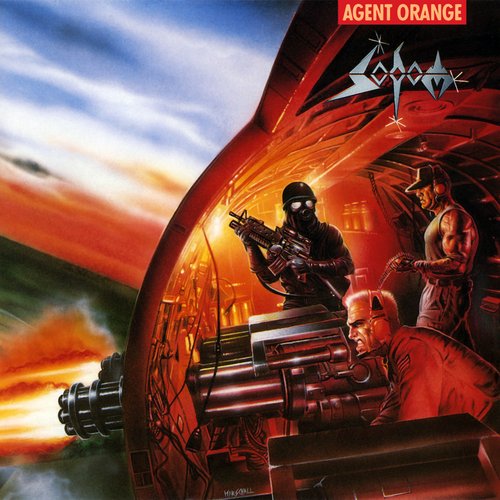
Sodom - Agent Orange (1989)
Genres: Teutonic Thrash Metal
Having got through the EP's and albums before this one, including their first live album, I'm happy I'm finally checking this out. Their second album and second extended play showed a major upgrade in musical quality, both on a songwriting and heaviness factor, so I wasn't sure exactly what to expect except for a good time. The titular opener showcases a new ability to go from careful melodies to proper thrashing instantly while keeping the essence strong. Some may miss the fuzz factor that defined their blacker albums, but the clearer production gives them a chance to really show off their thrashing abilities, especially in regards to their guitarists. We also get some more excellent drumming from the always wonderful drummer, Chris Witchhunter, who's consistently been my favorite member. Hell, even Tired and Red is able to showcase just how far they're willing to take thrash by going from the blackened riffs to a softer ballad solo to some easier, chiller thrashing akin to Jump in the Fire. This is the most any Sodom song had done so far. If you're a fan of the really early Sodom stuff, then you might get a huge kick out of Incest (I want you to pay very close attention to the capital I). Its first half is entirely made up of the extra-strength muscle rub that slathered the earlier blackened stuff, heavier than anything on Agent Orange thus far. The second half is slower and a little more "epic" in that vein, before ending with a return to the first verse's form, as expected. This first side ends with Remember the Fallen, which starts as more of a heavy metal song than thrash. I'll be honest, they obviously didn't learn how to make a great heavy metal track yet. It was alright, palatable, but had nothing really amazing about it. At least they gave heavy metal a shot.
Side B kicks off with Magic Dragon (no relation to Gloryhammer or Puff). The heavy metal intro and first verse carry on the heavy metal sound of the last track with a slight improvement in quality, but it only made me want the thrash to come back because there's a difference between "pretty good" and "great." Thankfully, the second act kicked off just like that. Nothing new but it had much more personality and ability. But I certainly don't want the album RELYING on the thrash. I'm an "expand your horizons" guy, so I was a bit disappointed that Exhibition Bout started out the same thrashy way we've been getting for the previous few releases. Thankully the song took a softer thrash route after the first minute, and it really wasn't that bad. It was catchy and operable, but it only lasted for the middle section. The saving grace upon returning to typical form was one of their best solos overtaking the third act, a grand one that makes this one of the best songs on the album. Track 7, Ausgebombt, is practically a crossover thrash song that retools the Sodom sound, and adds a little something to the album that honestly should've been done ages ago (Slayer were doing it pretty often), so it's nice to hear that. And finally, yet another grand thrash, Baptism of Fire, shoves the black metal influence and the Teutonic majesty in your face as it should.
So this wasn't the most diversified album, as expected being a Sodom album, but it was another upgrade in quality, albiet a small one from their sophomore release. This is one of the harder thrashers in the Teutonic scene based on what I've heard so far, and I can get behind it being a thrash classic. Still, give me Metallica any day.
90
Sodom - In the Sign of Evil (1985)
Genres: Teutonic Thrash, Blackened Thrash
Today is a Sodom day for me. Having gotten done with some Bathory binging during my chores, today was a good day for some more blackened thrash. Sodom came around in 1985, following in Venom's footsteps while taking some of the thrash sound of Ride the Lightrning, and before being known more as a thrash band they put out this brutal little piece of blackened muscle. I gotta say that the general sound is pretty cool. The density of the guitar riffs and the production style work quite well for a debut extended play. Hell, this album is much harder than the majority of metal albums of the 80's if you ask me. The one doing most of the creative work, however, is the drummer. Every one of the bandmates knows how to be heavier than Hell itself, but most of the melodic structure is simple riffing at incredible speed with production to back it up. Aside from the highly impressive heaviness which never overstays its welcome due to the short length of the EP. But there really isn't anything truly unique about this album other than beating Bathory at the game he started with his debut album.
69
I consider In utero to be the perfected grunge sound, but it's not a pefect album for one reason: Rape Me, a simplistic rehash of better Nirvana songs with better lyricism and delivery of themes, effectively being the Midnight Sun to Polly's Twilight.
Yeah, I said it.
Bro, I absolutely adore Siouxsie and the Banshees. I've had an unconventional choice of theirs, Peepshow, in my top 100 for years, but I also fell in love with Tinderbox, A Kiss in the Dreamhouse, Juju, Hyaena and Kaleidoscope. Easily one of the best things to come out of goth rock. Even lesser known songs of theirs such as Ornaments of Gold are among favorites, as well as their hit from the dark ages before the breakup, Kiss Them for Me.
While checking out Vio-Lence AND some post-bop, I'm also using minor bits of free time to check out the extremely short albums of this trap artist named Dave Blunts, known for his complex beats and his large weight. I read that he's going to work hard to try and lose that weight for personal reasons. His beats are quite fine, but when it comes to his lyrical rhythms and rhymes, the humor doesn't change the fact that he's basically another run-of-the-mill trap artist. Hopefully he makes his beats more unique while working on his health. He obviously has some smarts in some respects, and I'd like to see those expand.
The Mothers of Invention - "Absolutely Free" (1967)
The Mothers' 1966 debut album "Freak Out!" did very little for me & the same can be said for their follow-up from the next year "Absolutely Free". I simply need much more from my music than artsy humour & there really aren't any examples of classic, timeless song-writing here. Admittedly, some of the lyrics are quite witty (perhaps more so than on "Freak Out!" which I had a touch less time for than this sophomore effort) but that's unfortunately not all that I require to make for engaging music. There are a few decent numbers included (see my personal favourite "The Duke of Prunes", the jazzy "Invocation & Ritual Dance of the Young Pumpkin" & closer "America Drinks & Goes Home") but the majority of this material just washes straight over my head without much sticking from a musical perspective, even after several listens.
For fans of Captain Beefheart, Soft Machine & Gong.
2.5/5
Thanks for reminding me of this one. TUrns out, when I first heard it months ago, I didn't add it to my log. Anyway, as a fan of Zappa, it's a shame that I have to address some problems here. Now the tunes and rhythms themselves are perfectly done products of the time. It's a very catchy album in that regard. But, the focus seems off. The attempt at being an experimental rock band don't really mingle with the attempted storytelling and the jokes IMO. These three aspects would work well on their own otherwise. So while it's enjoyable, the multiple angles somehow manage to make a Zappa album's randomness cave in on itself. You'd think after the debut, that wouldn't be the case, not for me at least, since Freak Out was one of my first albums as an albumer and I ended up adoring it.
78/100, one of the lowest ratings I've given to a Zappa album. So, pretty good, but not the game changer that's the norm for Zappa.
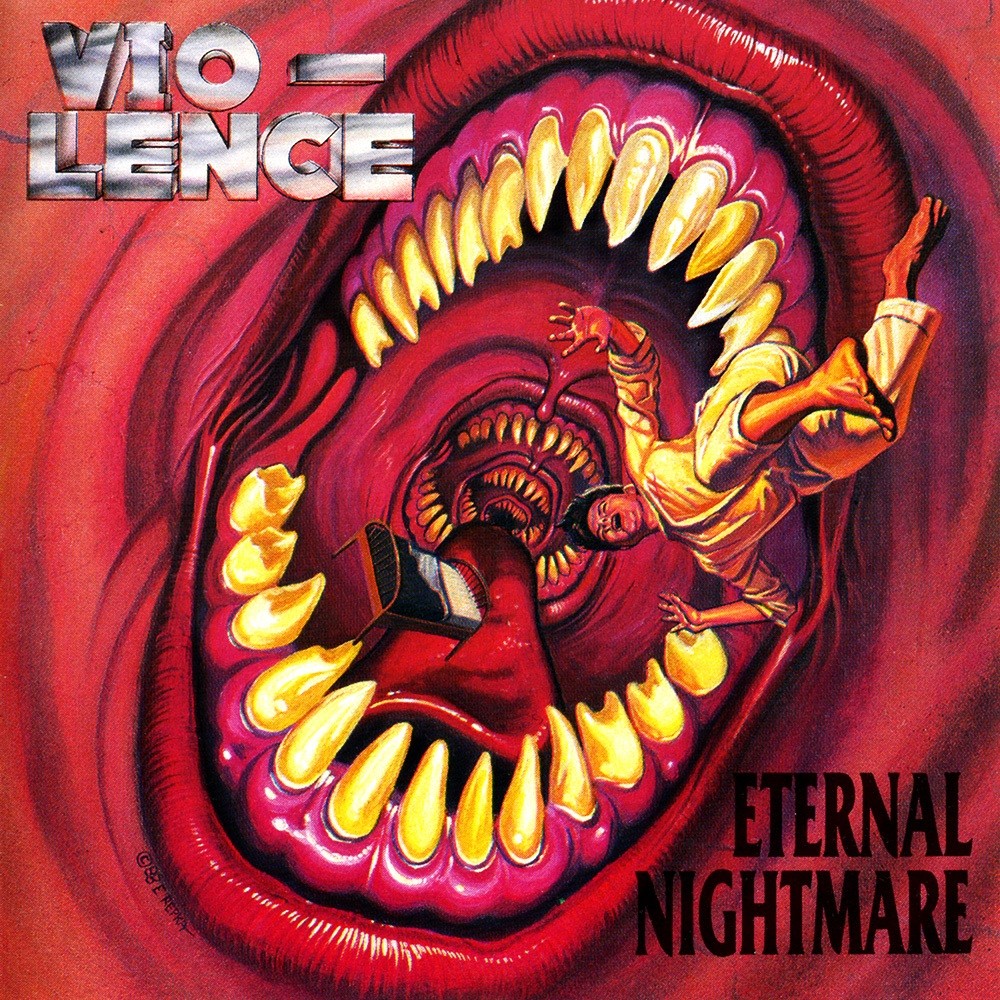
Vio-Lence - Eternal Nightmare
Genres: Thrash Metal
After hearing the band's two early demos, I still didn't have much of an inkling as to their true abilities because the recording quality, demo or not, was terrible for the first demo and slightly better for the second. With this one, they got a real producer to handle the sound quality, which maximizes everything they're capable of. Thing is, while these guys are still stylistically generic, not really standing out with a style of their own, theycan sure jam like fuck and play at Star Trek levels of warp speed. Much of the frontal work is done by later Machine Head guitarist Robb Flynn, who totally understand what thrash power and riffage needs to sound like. For the most part, the rest of the instrumentalists aren't really struggling to keep up with him at all. They match his power pretty easily, which is incredible considering that the single hiring of one different person would almost send this album toppling. Of course, that's as far as the instrumentation goes. Although this is a perfectly produced album with song great songwriting, I'm really not digging Sean Killian's vocals. Not only is he joining the chained-to-a-wall kink train of thinking shouting the same way through a whole album is somehow the coolest thing you can do, but it sounds like he's in the wrong genre. He sounds like he belongs in a power metal band or a Queensryche knockoff, like he's adjusting his voice for thrash to hide this and failing. As well, with half these songs sharing very similar tempos and practically all of them bearing the same vibe, they don't really push any boundaries beyond raw instrumentality. As well, some of the songs drag on much longer than they likely need to, largely because the album's mostly an exercize in showing off both instrumental and production techniques rather than an example of depth. So I think it's right that I give this a good rating for some incredible strengths, but from a broader perspective, it's not the most enlightening... just addictingly thrashy.
83
Yellow Magic Orchestra - "Yellow Magic Orchestra" (1979)
The 1979 sophomore release from Tokyo synthpop act Yellow Magic Orchestra is a complete remake of their self-titled debut from the previous year, this time being achieved with a greater level of clarity & crispness in the production. I hated the original if I'm being honest &, interestingly, I've found myself going a little against the grain by hating the remake even more. This shit is as cheesy as absolute fuck & I really struggle with the vast majority of the material with only the annoyingly catchy "La femme chinoise" managing to break through my defenses. I'm quite simply not the intended audience for these early YMO records & will be giving them a wide birth in future.
For fans of Kraftwerk, Isao Tomita & Yukihiro Takahashi.
1.5/5
As I've said before, I tend to like cheesy music when it's done right. Back when I was first starting on music forums, I was a bit of a nut for Meat Loaf. These are the kinds of guys that can rock Japanese electronic cheese like tuxedos IMO. Honestly, I consider YMO one of the top synthpop acts, and this remix album is a part of the reason why.
Art Pepper - The Trip
Genres: Post-Bop
It appears that Art pepper isn't very popular on Jazz Music Archives. That feels a little awkward since I've seen some darn good praise for his works on other websites. This album in particular, The Trip, is part of what looks to be a comeback period after a ten-year hiatus from 1963 - 1973. But I've heard quite a few Art Pepper albums before this one, and I have to say, I'm not terribly impressed. Out of the seven I've heard, this is the second worst.
And why? Now the moods are alright, nothing that hasn't been done before but nothing that doesn't at least get to the back of your neck. But the real issue is that only half of the six tracks have any engaging melodies or sax solos, so it's only really enjoyable half the time. Three tracks are pretty boring, two are only pretty good, and the only track worth bobbing your head to is Sweet Love of Mine due to its slight Latin flair. So suffice it to say, even though some people seem to love this one, I really can't see myself going back to this anytime soon. It's got some finely-tuned aspects, but the melodies can get quite dull.
67
New addition to my top 100 albums of all-time, not just jazz.
Charles Mingus - Town Hall Concert 1964
Genres: Post-Bop, Avant-Garde Jazz
I struggle with finding post-bop albums that really amaze me. This has the same evershifting consistency and wide-ranging delivery of Black Saint and the Sinner Lady and almost all of the melodic prowess. But of course, when you put Mingus with Eric Dolphy, amazing things are likely to happen. I mean, So Long Eric is flawless jazz on its own, but Playing With Eric is just otherworldly. I felt lifted into space with this one, especially during the first nine minute section. There wasn't anything like this before. This basically did the same favor for jazz that Shpongle would do for EDM with their debut. Currently, Town Hall Concert 1964 is my number 1 post-bop album, and a much needed addition to my top 10 jazz albums considering the plethora of jazz fusion and spiritual jazz that rules it.
I agree, 7/10. This sophomore had a better metal-energy sound to it, but it came in lieu of the songwriting strengths of the debut, and later albums, notably Follow the Leader and Issues.
Some of the best melodic progressive metal occurs in one of my favorite tracks by this band, filled with neoclassical madness:
Playing Symphony X music was extremely important in setting up the moods for my debut novel. This is one of the specific songs I put on repeat for that reason, along with Evolution, Egypt, Set the World on Fire and Paradise Lost.
Taking a small break from post-bop to re0-evaluate a couple of avant-garde jazz albums. I'm going back on Tauhid right now, and if things continue to go the way they do, it might become my new #1 avant-garde jazz album. It has some of the wild behavior of Black Saint but with a much more spiritual presence, and plenty of room for soft meditation as opposed to filling it with catchy hyperactivity, which is either charming and meditative or dark and surreal depending on how the flow goes. There's a much more astral presence to it, and I'll even consider this a healthier album than Karma if the second half is just as good as the first. Hell, three minutes in, the guitar tricks sound almost exactly like a proto-Merzbow piece or something. So I think this'll make it.
THE DALE COOPER QUARTET. And as I predicted, not a single Dale Cooper. Thanks for letting me know that exists; they're totally on my to-do list when I get around to dark jazz.
Today is a Roland Kirk day. I just finished I Talk With the Spirits. I like its childlike approach, almost like a bedtime story told through music. The jingles of the first half greatly outweigh the second half. 83. Now I'm starting Volunteered Slavery and it's starting off great.
Here's my new jazz fusion top 100. Ratings go from 100-89.

In saying that, I don't believe that metal is less conducive to absolute garbage than other genres. In fact, the bottom end of my ratings database if littered with metal filth, most of it being far worse than Justin Bieber.
Me as well. I've got quite a few metal albums ranked at 0/100, including Attila's Fallacy and the two Thrash Queen albums. Metal's some incredible stuff, but sometimes somebody puts out something that only manages to be an embarrassment to it's genre. Hell, that's the only reason to check out Psycho Synner or Keydragon.
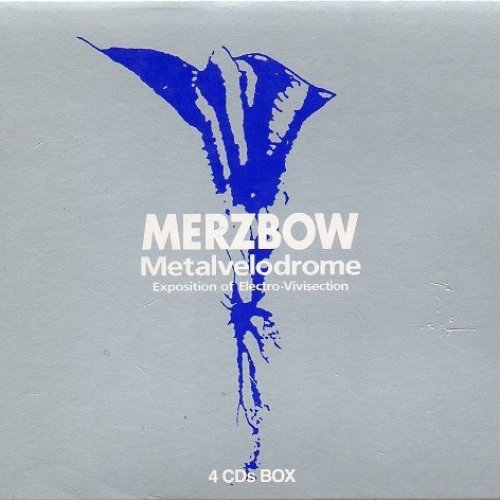
Merzbow - Metalvelodrome
Genres: Harsh Noise
On my noise ventures I found myself mostly driven by the challenge of finding truly artistic music from the more extreme variants: harsh noise and harsh noise wall. And I've found some that I've liked, but mostly when it plays with other genres like a Uboa album. But this 4-hour Merzbow album is at the top of the RYM harsh noise charts. Was that a good sign, or is this an album that only the ones who would listen to four hours would finish anyway, thus allowing less people who see problems with it to even rate it in the first place? Since I have the capacity to enjoy noise music and am mostly a rocker, I felt I had to say something.
And this is what I have to say: it's definitely the latter. If Merzbow, a man who had been doing noise albums for 15 years up to that point, wanted to make a 4-hour behemoth of ugly sound, then he should've done more to play with the sound. By this point, the vast majority of noise tricks pulled in these four hours can be done by literally anybody if you ask me. I've heard imitators that were much more intriguing. It starts out cool, but the entire first half is just generic noise music at this point. Now a lot of wacky and cool ideas are played in the 45-minute track, Another Crash for High Tide. The weird sounds, the vocal effects, it's all pretty cool. But there's so much packed into it that most of these ideas only get about 20 seconds of album time. And the worst part? THIS SONG STARTS AFTER THE FIRST TWO HOURS ARE OVER. In other words, it's two hours of generic noise before creativity has a say. Why the hell didn't Merzbow flesh all of these ideas out into better songs throughout the whole? That's pretty infuriating, especially since it goes back to generic noise for the rest of it, mostly.
This four hour behemoth needs a serious re-evaluation on RYM by more serious and diversified explorers. This is a pretty standard noise album for most of it with some creativity attached, going into unholy lengths to get 1 job done for three out of the four hours. Merzbow would do much better in the close-by following years, so while this album shouldn't need to be heard, historically speaking, it doesn't deserve to be the highest rated harsh noise album on RYM at all, let alone any website that covers noise music. If you wanna hear REAL Merzbow music, try Electric Salad.
52
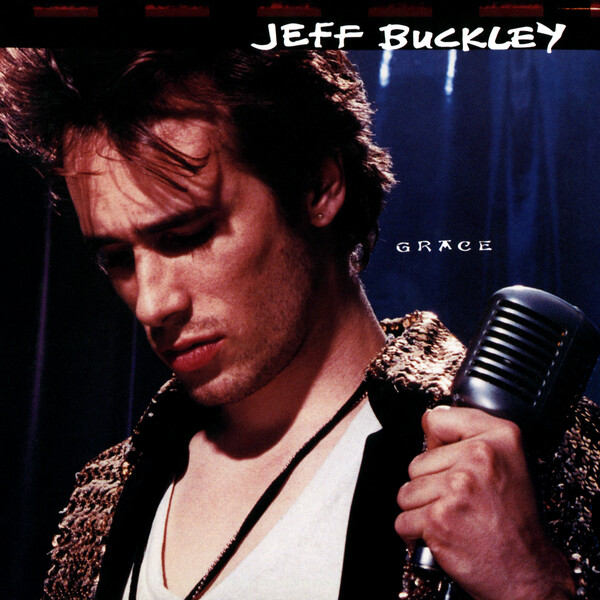
Jeff Buckley - Grace (1994)
Genres: Alt-Rock, Singer/Songwriter, Art Rock
I'm looking forward to an opportunity to catch the new Jeff Buckley documentary on Prime, but it's been way too long since I checked out any Jeff Buckley. Truth is, I had been so bent on checking out and discovering albums since I first heard this in my first year of album logging that I haven't heard this in 13 years. Poor guy only met his dad Tim once, but that made all the difference. This guy clearly listened hard and smartly, not only to the works of his father, but to all the classical and rock artists that influenced him. You can hear mild bits of the Mozart and even Siouxsie influence in his singing and his melodies. But in the end, the many ingredients that make this album all become the Jeff Buckley identity, nothing short. Hell, even when Dream Brother practically sounds like a cover of a Siouxsie song, it's still a Buckley song. This is rock at some of its most gorgeous and heartfelt. His singing has a falsetto range even beating Thom Yorke, and his ability to go from soft and folksy to rough and noisy is some of the most carefully constructed and carefully flowing transitioning I've ever heard. Hell, he's the only one who can sing Hallelujah and make me think "Buckley" instead of "Shrek." God, I wish he didn't drown. One album into his career, he proved that he was a musical genius.
I've made the move to Florida and I am immediately a much happier man. Sunshine everyday is nice after 10months per year of darkness up north. People are friendlier too and my wife is happier at her new school so far. I just have to get my own ball rolling. All in due time.
I haven't felt inspired to write reviews for a while.
I got to see Crowbar live down here, and that was amazing, Kirk's wife was working merch, so I know he got the hallmark card from my wife and I. Life is good down in dixie.
Awesome that you're happier down there. My sister lives in Florida, but we haven't been speaking much. She's had an awkward history with my family, even though we always tried to be friends. But she seems to be making a lot of things private. I've always wanted to go to Florida myself, though.
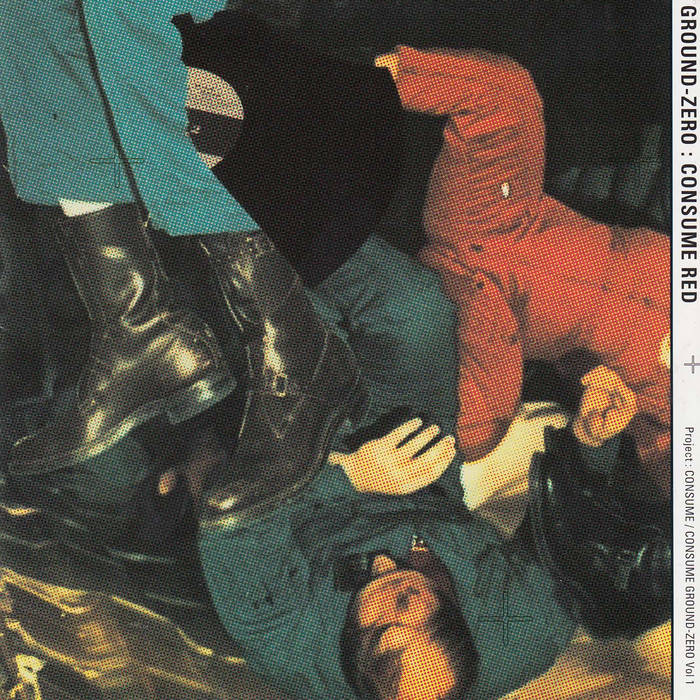
Ground-Zero - Consume Red (1997)
Genres: Drone, Exp. Rock, Noise
On my noise ventures I had been putting off an album I've been needing to get to for a while, Ground-Zero's Consume Red. Now I've heard one of their albums before, Revolutionary Pekinese Opera Ver.1.28, and despite giving it a perfect score, I didn't go back to any of their other albums because it seems that each album goes for a different collective of genres. And I also put this one off during my noise studies because I wasn't sure from the genre-tagging that it would start out with the noise I needed to drown out certain outside work. But just look at the RYM tagging for the secondaries: Turntable Music, Free Improvisation, Noise, Korean Folk Music, Fusion Gugak, Sound Collage, Sanjo, Totalism. All of that in an experimental hour? Sounds like heaven to a Zappa fan like me!
At least the idea did. The first twenty five minutes are dominated by the abuse of the same few jazz notes over and over and over again with only slight instances of noise building up overtime. It got so utterly infuriating. And then finally, almost halfway through the album's single-track hour, it finally brings in a lot more noise and some rock drumming. Now at first they're welcome additions, but them the combination of the three practically refuses to change pace once the three are in place, so once again I'm stuck with a drawn-out work that completely fails to utilize the best of Ground-Zero's proven experimental prowess. You can barely even hear the fourth major component, the shamisen. For twenty minutes this goes on until around the 45-minute mark, where it mostly becomes a noise album.
I was really hoping for something much more insane and much less repetitive, but I didn't get that. This feels like pussy when compared to Ver. 1.28. How did this get nearly a 4.00 score with almost 7,000 on RYM? I certainly don't know, but it failed to be an atmospheric experience and only got to the mania in the last 12 minutes, so I left largely dissatisfied that the genre-tagging caves in on itself via the repetition and annoyance.
58
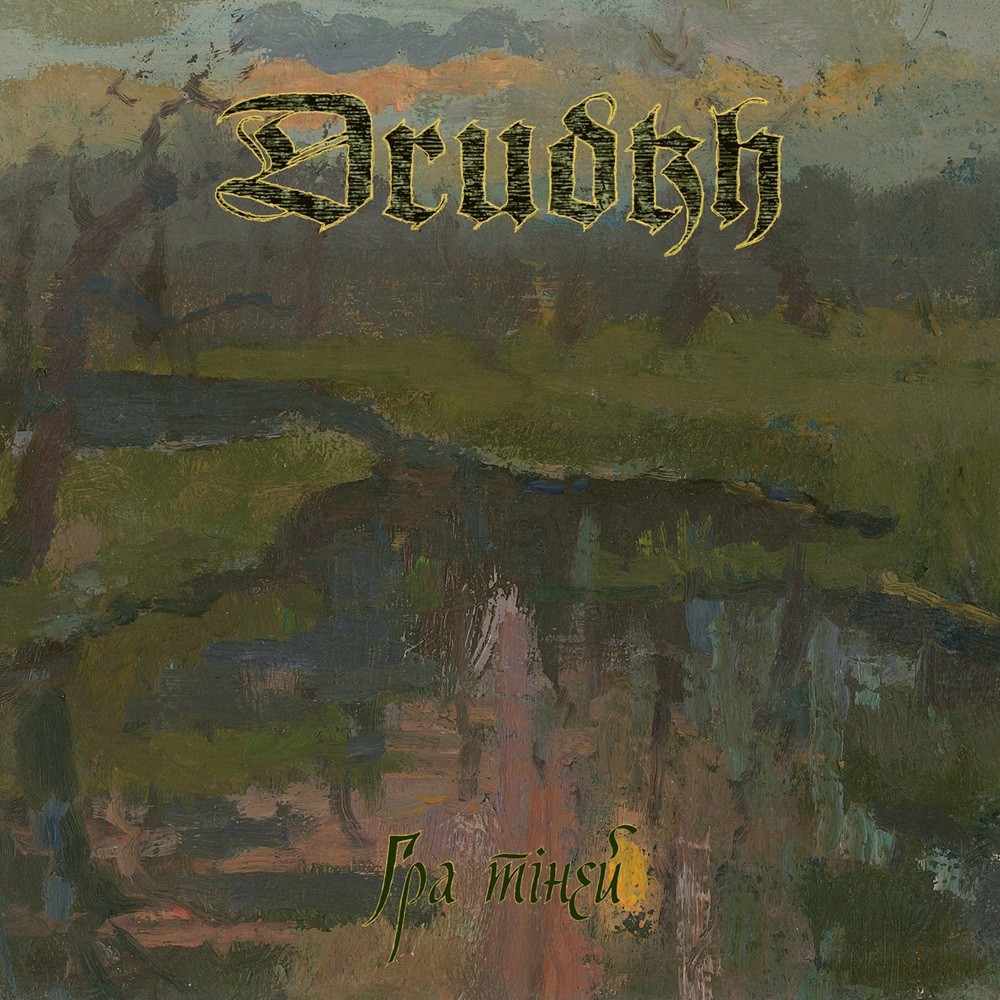
Drudkh - Shadow Play (2025)
Genres: Atmo-Black Metal
Now we all know that Drudkh had a leading say in the development of nature-themed black metal. They were basically THE band for the job. They had a bit of a rocky road after their 2009 album Microcosmos, as the people say, but there seemed to be, ahem, light in the forest, during recent years. So while I came into 2025's Shadow Play with some good expectations, I remained aware that those expectations wouldn't be met. So while the album's getting great reviews, I have to say that they've once again become a passable and generic black metal band. This whole album is all about relying on, and drawing out, half of the basics they had already mastered in the 2000's from Forgotten Legends to Blood in Our Wells. The album's going for finely-tuned production above everything else, so black metal riffs and melodies come off as unoriginal. As well, the production doesn't always balance out the ambient backgrounds and the riffs in the foreground, occasionally coming off as muddily-handled despite the ambiance. I mean, Drudkh influenced so many bands that have done this album so many times that it's not a joke. Did you know, if you just check the RYM charts and filter it by year and with only black metal, you'll get 25 pages of 40 black metal albums? And 25 is the maximum they show in custom charts. That means every year, we get over 1000 black metal albums. These days, thanks to other nature-themed atmo-black bands like Panopticon and Ashenspire, I can guarantee you a good portion of those albums is nature-themed. That means Drudkh has gone from influencing a classic form of metal to producing the same tripe that their own imitators make every year, just with better studio production that sometimes gets in the way. What an overrated disappointment. Production will keep it tolerable throughout, but otherwise this is kinda bogus.
52
Dave Mustaine has announced that next year's Megadeth album will be their last & that the associated tour will be their farewell.
What a crazy day for thrash. One's coming and the other's going.
THEY'RE FUCKING BACK!
This is the three year anniversary of my of my first ever review: Ride the Lightning. But I never posted it on this thread. :P
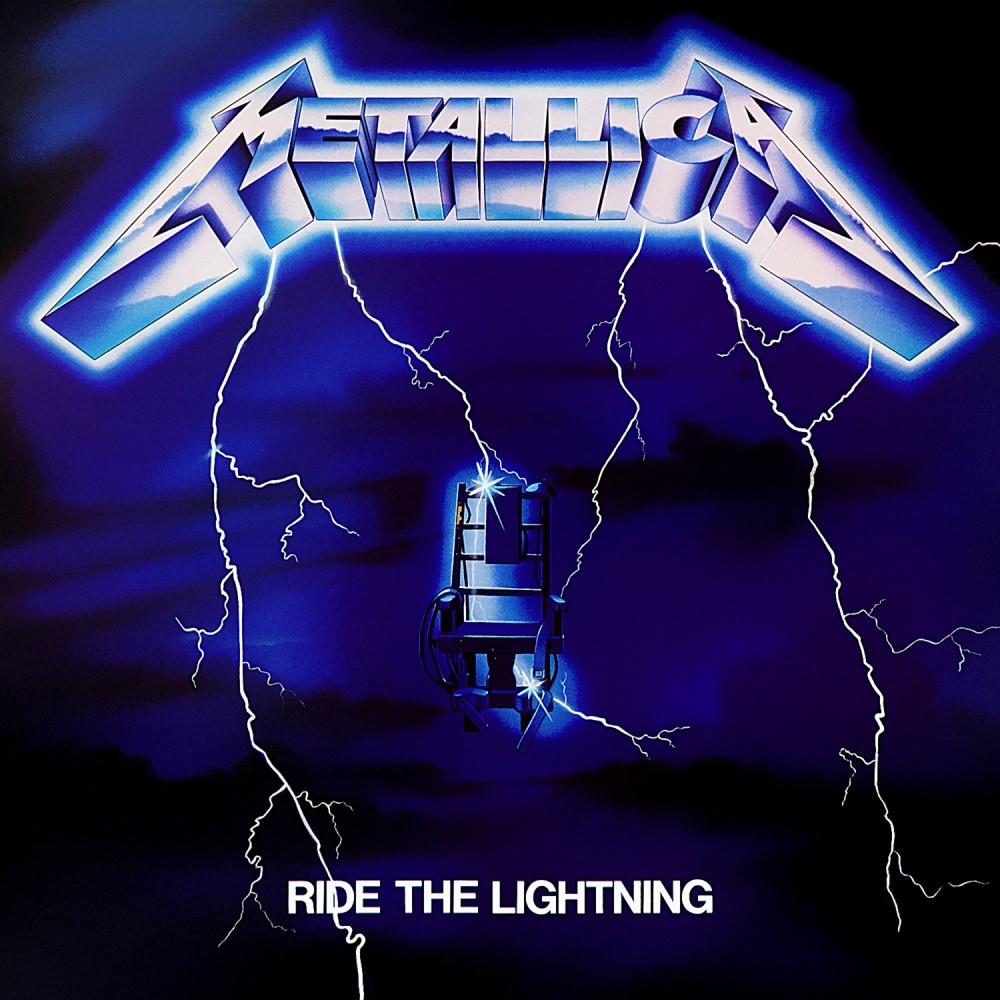
In my younger days, like many other young peeps, my knowledge of Metallica was practically limited to The Black Album and a couple of singles from the earlier days like “Master of Puppets” and “For Whom the Bell Tolls.” I wasn't fully in tune with thrash. Well as I got more in-tune with thrash I had Master of Puppets ranked as the number 1 metal album of all time. But I didn't put in in my top 20 despite how much I love metal because I always considered it a little bit bloated. Well after a lot of personal growth and re-evaluation of my life, I also re-evaluated how I rate some music, especially metal.
At first I was NOT willing to give Ride the Lightning a spot above Master of Puppets (I even had And Justice for All ranked above it). Why? Simple. Puppets' production is much cleaner, the rhythms are more developed and progressive, and Metallica's style fully matured. After re-assessing myself, I realized that the big question was not “What's the best Metallica album,” but “what's the best METAL album?” If my metalcore phase taught me anything, it's that any type of production is acceptable depending on the situation. Let's be honest. Ride the Lightning's production but not be as clear as that of Puppet's, but it really is way more metallic. They obviously came a long way in that short one-year time when the were one of the best up-and-coming metal acts playing typical early thrash, and became the very band that defined thrash.
Believe it or not, my first encounter with Metallica's “Fight Fire with Fire” was not a pleasant one. Before I was used to the idea of thrash metal (or even heard of it for that matter), I would originally type the name in to look for a Kansas song. I wouldn't hear the actual album until four years later when I first started exploring music forums and charts. It would take a few years more for me to grow fully accustomed to the harshest side of metal, and that included death metal and black metal. I have Symbolic by Death to thank for that. It was the first death metal album I had ever heard and I gave it a 100/100 right then and there. The whole point of making this the opener is to give you an idea of how much power your exposing yourself to. By the time you're done with the album, you'll already be glowing blue. Da ba dee. I mean, after that soothing guitar solo at the beginning, you're dealing with BOOM BOOM BOOM! They don't call it “Ride the Lightning” for nothing! The way that atmosphere in the production works just makes it more metallic! Sure, the intro to the opener isn't as good as the one from Puppets, but it's overall a better song than “Battery.”
I admit, I'm not so well emotionally connected to “For Whom the Bell Tolls” as many other Metallica fans are, but I'm not denying that it's one of the high points of an album loaded with high points. Taking a literally dramatic shift from the thrashing thunder of the gods, the early stages of the poetry that would be seen on Master of Puppets drives this song as much as the heavy metal melody. “Take a look to the sky just before you die, It is the last time you will. Blackened roar massive roar fills the crumbling sky, shattered goal fills his soul with a ruthless cry.” Edgar Allen Poe's getting owned here. Screw the talking raven (OK, that's my screamo band name). Much of Metallica's best "guitartistry" is boasted on “For whom the Bell Tolls,” each player doing their part to add their unique vibe to the aura and all work as well as any harmonized group while still being very creative.
Now we get to the crown jewel of Metallica's songs: “Fade to Black.” This was Metallica's first ballad, and it was recorded at a time when James Hetfield not only had some obsession with death, but had to deal with much of the band's equipment being STOLEN, including his favorite Marshall amp! Damn. As you can imagine, that helps set the mood for one of Metallica's most iconic songs. The poetry of “For Whom the Bell Tolls” continues as one of the most beautiful and emotional moods in all of power ballad history ends side B of this album. There's no need for crazy solos when you can feel the sadness touching you. How human can a song get? It does get heavier towards the end, but that's a Metallica staple right there. That doesn't stop Hetfield from delivering some of his most heartfelt vocals in his career.
Alright, the first half of side B is considered the weak point of Ride the Lightning, but what album doesn't have a weakness? I admit, I'm not in love with the intro to “Trapped Under Ice.” It slowly gets better until WEEDLY-WEEDLY-WEEDLY comes along, returning to the raw thunder of the first two songs! Even though it's more like one of the basic thrash songs like on Kill 'Em All, the Ride the Lightning energy is still there, never damaging the album's flow or consistency. I mean, come on. Is speed metal not the perfect subgenre to feature on a thrash album? Besides, for a song about literally being trapped under ice, the lyrics are really freakin' good. The song almost feels crossover-thrash-esque the way it rides on energy and quick reactions.
“Escape” is considered the worst song on the album, but I like the intro more than I like the intro of “Trapped Under Ice.” It's more rhythmic and true to the Metallica style. I think the problem here is that it's written more like a song from your average hard rock / heavy metal album instead of one of the first thrash albums. Maybe that actually works, considering that the roots of thrash come from acts like Deep Purple and Black Sabbath. Hell, I wouldn't mind a good Scorps cover. Besides, the song still rules overall. The solos are still great and the lyrics are still human and relatable.
“Creeping Death” is one that I find particularly interesting because of its lyrical content. As opposed to the satanism often showing in albums at that time, Metallica decided to write a song about the Angel of Death from the book of Exodus! Well, you gotta keep the concept strong somehow. Although the song is more formulaic to the thrash stereotype, the badassery is at its peak. “Creeping Death” is balanced out between Metallica's energy, sense of rhythm, and lyrical drive. Unlike every other song on the album, it doesn't rely on solos to make its mark because of its balance.
“The Call of Ktulu” is the closer, and the only instrumental on the album. This nearly nine-minute epic pretty much covers everything that was going on throughout the album but with a deeper sense of mystery than every other song. Starting out with that slightly creepy solo was the perfect way to go. Like other prog-infused epics of its time, it slowly gets heavier and relies on a clever collection of combined solos to make its mark on the album. I don't know about you, but I think that's a perfectly epic way to end such an incredible album.
It's so utterly weird when you finally catch on to why an album is so great, because a whole new world opens afterwards. Ride the Lightning opened up a whole new level of understanding in the world of thrash (and maybe metal) for me, and I plan on making the most of it. In my opinion, it's the single greatest example of metal in the world. It's atmosphere is flawless, the energy of the album is rivaled only by a select few like Pleasure to Kill by Kreator, and the theme and concept never suffer. In fact, Ride the Lightning is much better at delivering its concept (of death and humanity) than most albums are at delivering their own concepts. It goes without saying that Ride the Lightning is an indisputable essential for any metal collection, and I'm glad I love the album as much as I do now.
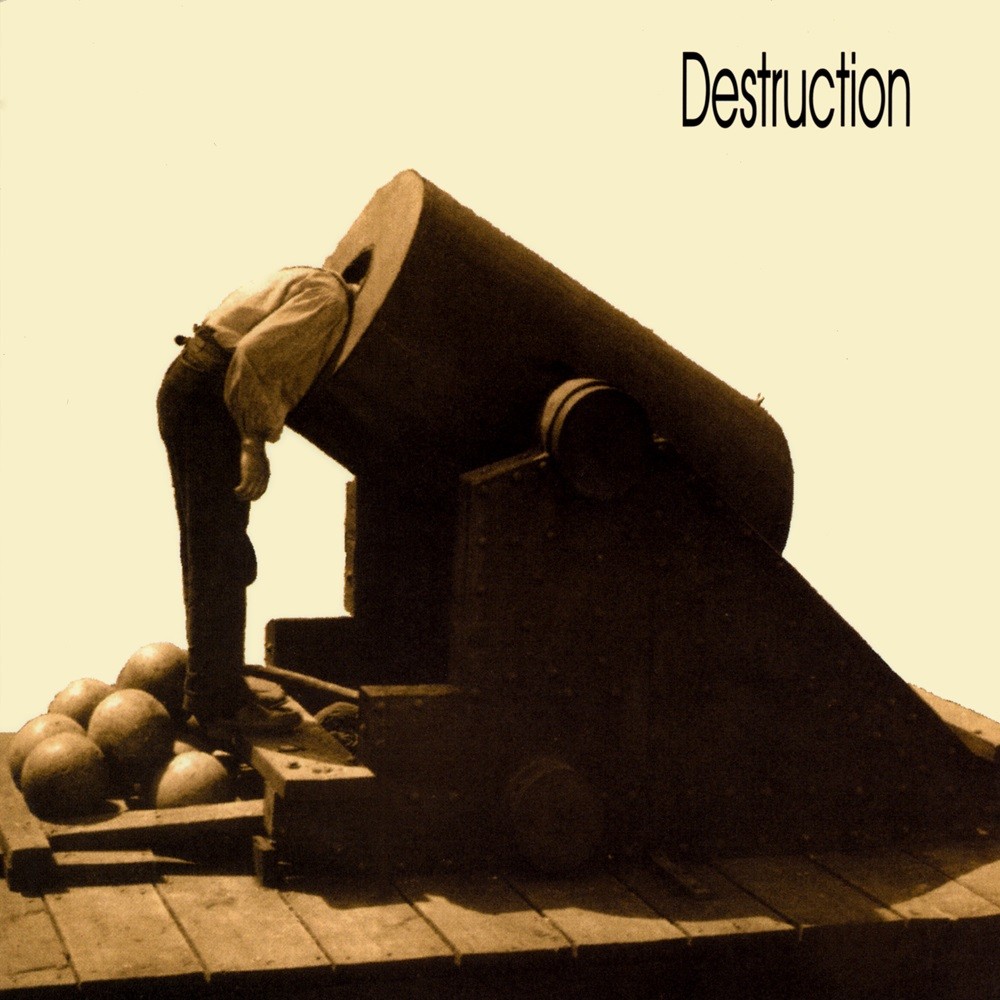
Destruction - The Least Successful Human Cannonball (1998)
Genres: Thrash Metal, Groove Metal
Despite being in the Pit for my love of Metallica, can't say I'm very in tune with groove metal. I give it chances on and off, but have little interest in a deep exploration at this time. This is partially because so many classic thrash bands made the switch to at as quickly as the European prog giants of the 70's switched to AOR and pop rock, and the results were about the same: middling and generic. Of course, I can't deny that a part of me absolutely loves the album Invisible Touch by Genesis more than my technical rating states (which is already sitting pretty at 93). But how can I complete my Destruction marathon without getting through an album so bad it might as well be Lulu? It's a key part of their history just like Risk is for Megadeth, and I plan on stopping at their comeback album, The Antichrist. So, here we go.
Aside from a half-cocked album cover that looks less like a thrash album and more like a screenshot of a Monty Python animation with a quickly placed cheap font for a logo because "money's tight," I found it easy not to hate the album, shall we put it. Now I encourage change and variety so that a band can prove they're capable of many other things, thus potentially improving greatness by virtue of multiple talents. But how does this groove album stack up against the others? Well, with the groove aspect and slower tempos maintaining SOME of the thrash genre that defined them, this newfound love of the 90's sound fails to stand out. Catchiness is spotty and riffs are pretty done before. On top of which, it's pretty obvious how much of their previous identity they forsook for this new route. I'm sure if they had bothered to diversify their earliest albums more so that stuff like this feels a little more natural, this wouldn't have happened. I mean, the vast majority of these groove songs do more or less the same thing, which in itself is hardly a surprise considering that it's a Destruction album. There's a rare exeption in Brother of Cain which goes into some major thrash power. Otherwise, it hardly gets interesting at all, and mostly just worries about getting on 90's radio. So this really doesn't do Destruction, or the groove world, any favors. Having said that, it's still a bit better than those two groove EP's they did in the eight years between this album and their last, Cracked Brain, so it's not terrible, just not promising.
57
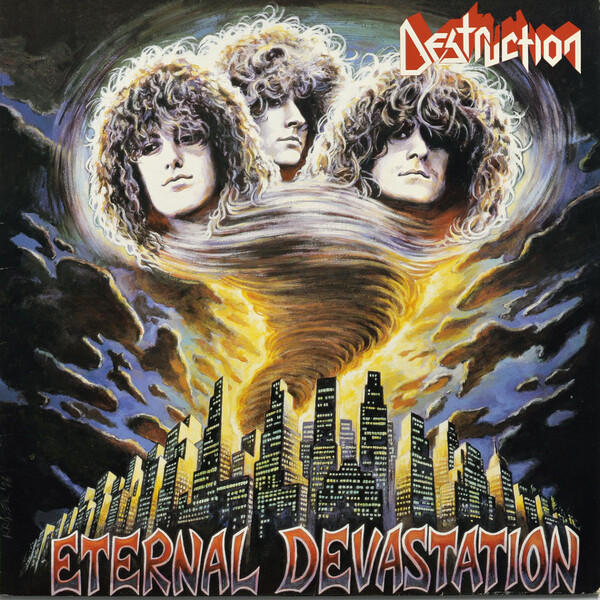
Destruction - Eternal Devastation (1986)
Genres: Teutonic Thrash Metal
Big three of Teutonic thrash? I was starting to question such a decision made by 80's society with Destruction's debut EP and debut studio album failing to meet my standards for greatness. I was really hoping for something more artistic this time. judging from the way Curse the Gods put up a couple more tricks, making six minutes feel like four at the same time, I thought to myself I might finally get that are I was lookin6 for. I mean, sure, they fall in the same tempo and stylistic tropes for the most part, but it seemed like they were really trying to get something historical out there. Or so I thought at first. Unfortunately, there are still times where things feel too drawn out yet again. It's obvious that the five-to-six minute edge doesn't generally work for them.What really bothers me about this album is the way the percussion sounds. It's not heavy enough, being almost entirely drowned out by the lead and rhythm guitars. Now the unpredictable sense of art comes back for the shorter songs on Side B, making things interesting again. The drums can even be heard properly. The last track is even a much better example of the aggression and technique that the band's been largely relying on, being much heavier and more powerful than ever. So while this managed to be a slight improvement in writing, it also fixed its production problem in the first half.
71
I'll be posting other Destruction reviews on their album pages. I don't want to flood this forum.

Destruction - Infernal Overkill (1985)
Genres: Teutonic Thrash Metal
It's obvious that the band was trying a little harder in the art department to keep things a little more sophisticated, especially from such a progressive intro track. Much more interesting things are done with the hardcore-style riffs, finding clever ways to combine multiple repetitive riffs together for some grand new idea. A very goo example of that is the middle-section to The Ritual, which found ways to be unpredictable despite its lacking progression of, ahem, different notes. But this usually isn't the case. There's still the filler aspect in which production and speed are the major factors. For example, Death Trap just goes on for far too long. It's got some damn good riffs, but it's a bit easy for these guys to draw out five minutes when their biggest concerns are speed and atmosphere. And Tormentor sounds like a broken record until you get to the guitar solo. Hell, the eight-minute closer, Black Death, is basically switching between the same two riffs throughout the run, managing to do less imaginitive things than the four-minute opener. So in a way, it feels like they didn't really care about the fans enough to really write their own Stairway. There are noticeable improvements in the production and a few of the riffs, so there's that, but the fact that they went from the three-minute songs to five minuts with little change in most instances is a little of an insult.
69
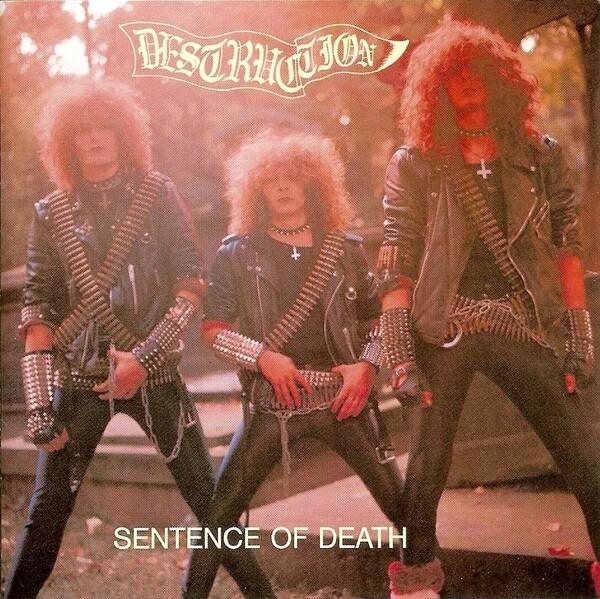
Destruction - Sentence of Death (1984)
Genres: Teutonic Thrash Metal
I never hear anyone talk about the band Destruction these days, but they still get really good reviews. I guess they're one of those bands you just check out if you like thrash history or have a soft spot for the Teutonic stuff. Since I need to review one of their albums for the list challenges on Metal Academy, I started with their debut extended play, Sentence of Death. The apocalyptic spoken intro was cheesy enough as I expect, but even though there's some pretty good riffage here, at this point, I've just heard so much thrash like this, even though this is the really early stuff. Having been released about four months after Metallica's game-changing Ride the Lightning, this sounds pretty generic in comparison and many other thrash albums, even better ones, would sound just like this. I suppose all the dark and thunderous sound effects are their attempt at a sense of art, which is fine, but I'd prefer if their riffs more greatly reflected that. Now for early thrash, this relies on darkened screams, general speed, and decent riffs. They go for a speed metal route that comes off a bit punkish, and can even be seen as a small factor in the early development of black metal. But other than that, there's nothing here that Metallica, or even Venom, didn't do better. It's obvious that writing was of least concern as long as they could be fast and edgy, and they kind of succeed at that. But since it's only a debut EP, it';s obviously not the most well-produced thing on Earth. These guys were obviously young and just wanted to rock the basics of a new world and grab a piece of that Metallica action. Decent, but only really necessary if you're a thrash history buff.
68

The Gerogerigege - Instruments Disorder
Genres: Harsh Noise
Listening to noise albums helps drown out unwanted sounds when doing outside work, so I've kind of forced my subconscious to become interested in critiquing noise music. Just started this iconic one, and it's not the first of their albums I've heard. I heard a couple of their "Senzuri" ones ages ago in prep for this and later forgot.
Current top 10 noise albums (not including noise rock, pop, punk, etc., unless the album falls under both straightforward noise and one of these genres.)
1. Uboa - Impossible Light (100)
2. Full of Hell & Merzbow - Sister Fawn (100)
3. Man Is the Bastard - The Lost MITB Sessions (100)
4. Uboa - The Origin of My Depression (97)
5. Cabinet - Hydrolysated Ordination (96)
6. Full of Hell & Merzbow - Full of Hell & Merzbow (96)
7. The Caretaker - Everywhere at the End of Time: Stage 5 (95)
8. Lingua Ignota - Caligula (95)
9. Uboa - All the Dead Melt Down as Rain (95)
10. Alder Deep - Chapter 2: Kobolds, Goblins, Cretins, Fiends (95)
WHOA. Didn't think I had ten five-stars.
This Heat - "Health & Efficiency" single (1980)
This single from a critically acclaimed London experimental rock outfit contains just the two lengthy tracks but spans over nineteen minutes in duration. The title track is an ambitious & highly engaging eight-minute rock effort while the B side "Graphic/Varispeed" represents one of the earlier forays into drone territory & sounds nothing like the rest of This Heat's material. I thoroughly enjoy the title track as it possesses a live electricity & vitality that's rarely found in rock music these days. "Graphic/Varispeed" is probably the reason a lot of people discover this E.P. & it's not bad but does tend to suffer from being overly long at over eleven minutes with very little variation on its theme.
For fans of Can, The Fiery Furnaces & Matmos.
3.5/5
I binged the two studio albums and this EP a while back. Overlong yes, but fun, You know, those were two of the first post-punk albums I ever heard, and I couldn't get into them at the time, even though I admited they were pretty good. I feel similarly to the debut, but Deciet is just phenomenal.
My jazz fusion studies will conclude with just a couple more albums by the following artists: Casiopea, Bela Fleck and Henry Threadgill. Just when I think I'm done with the jazz fusion studies, I find a couple extra details I need to get done. After that's all done, I'll head onto post-bop. But first! I'm at the point to where I can safely binge another metal band for the list challenges. I only have four bands to get through. This time, it'll likely be Destruction.
Right now I'm on UFO Tofu by Bela Fleck. So far, it's pretty good, but nowhere near the heights of the debut.
I suppose I'll end my Hiromi study with this year's release, Out There, and then likely move onto Hermeto Pascoal for the next couple days.
Didn't think Takanaka was gonna do a country fusion track, but it's pretty bitchin'.
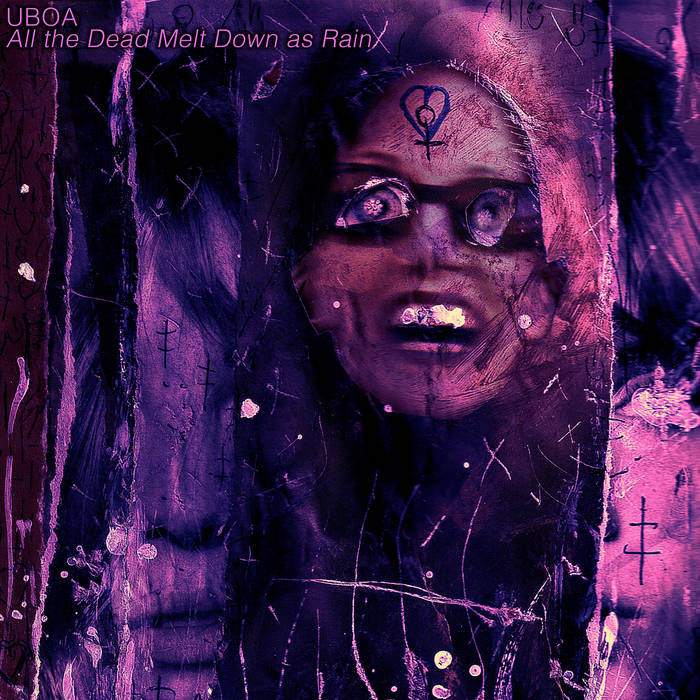
Uboa - All the Dead Melt Down as Rain (2025)
Genres: Death Industrial, Dark Ambient
I had no idea Uboa had a new EP out a couple months ago. I just now checked wondering if she had a new album announced. Didn't expect one so soon, and I'm super happy about this because Impossible Light and Origin of My Depression are just flatout phenomenal, doing much of what Lingua Ignota does but creepier and more wild. Sitting pretty at 37 minutes, this EP manages to do A LOT and never break its horrifying vibes. This one was extra-diversified in its range of ambiance, noise and industrial sounds. This is as freakishly creepy as I'd expect from Uboa, and almost reaches the heights of Impossible Light.
95
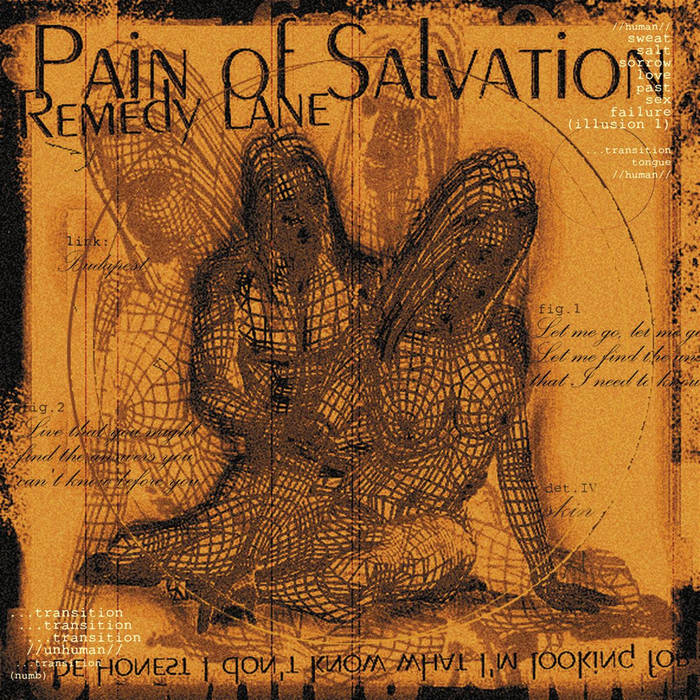
Pain of Salvation - Remedy Lane (2002)
Genres: Prog Metal
Here it is, the final of the four Pain of Salvation albums for my marathon, and the final album before I complete my Prog Metal Challenge List. To recap, my ratings for the first three albums fluctuated drastically from the general consensus. People say that Entropia was a great metal debut, but to me it was a bit imbalanced and not heavy enough. I almost adored Concrete Lake, and I thought the much-beloved Perfect Element was a good but somewhat overdrawn album with too much fixation on post-metal influence that seemed to take away from the identity of the first two albums. And now, here I am, at the general opus.
While I loved the instrumental direction the short opener took, the next track, ironically named Ending Theme, so was I in for more of the typical prog metal sound that I was so weary of when my marathon began with the debut's first couple tracks? Fandango seemed to answer my question: not entirely. Fandango's general sense of rhythm is totally xylophonic, not built in metal energy while the backing effects and percussion deliver a strong sense of surrealism. This is basically an experimental track, and I mean almost Residents level, even though it clearly uses the same instruments as previous efforts, so that was a damn good sign. But unfortunately, the next two tracks, while great and beautifully melodic, only provide faint ventures from the standard to other areas, so I'm not so sure what'll happen next. The eight minute Trace of Blood has some nice piano melodies scattered around, but remains high-level typical. The next track, This Heart of Mine, seems to have some Gabriel-era Genesis influence in the vibes, but not very strongly. Undertow was kinda lame in comparison. It just repeate the same slow melody over and over again and only differentiated itself by being more quiet.
Things got pretty proggy again on the more active track, Rope Ends, which knows how to put together a decent rhythm while maintaining the very reason I listen to prog in the first place. This one didn't stop being catchy, even when it was going wild. I get a nice follow-up with some Latin folk influence on Chain Sling, which showcases the best of the band's previously established strengths. Easily a winner of a song. Dryad of the woods continues the folk rock focus and is a nice and soft tune on its own, but even slow songs have more pizazz, and while this was nice and emotional, it was also missing that special something. After the title track, which is a largely prog electronic two-minute segue with a tamed but epic approach, the next track is immediately shamed as it falls into only decent melody and standard behavior for the band. Purely palatable, not remarkable. Same with the track after that, but then the ending, Beyond the Pale, gets back on track with a proper ending that takes the overall vibe of the band to a good strength, ending with one of their more emotional and rhythmically healthy takes of the modern prog sound.
Well, I didn't get the magnum opus everyone was bragging about, but it has plenty of strengths among the traditional sound. This was a very enjoyable album overall, but I'd say that instead of it being one of the greatest I've heard, it's more on the level of Dream Theater's underrated debut.
87

Pain of Salvation - The Perfect Element I
Genres: Prog Metal
After turning this album on, immediately after concluding One Hour by the Concrete Lake, I certainly wasn't expecting the verses to be orchestrated in NU METAL. But that didn't tell me this was gonna end up a nu metal album, just that this album was gonna end up wild and varied just like the previous efforts. Honestly, there's really no way to tell with these guys. But it's pretty obvious from the slow melodic structures and the nu metal influence that they were trying to appeal to the modern alternative crowd without being an alternative band. You can easily tell from the way our singer occasionally shouts in a very similar manner to Wayne Static. Despite this, post-metal also reigns pretty strong in the background, having a larger say than any other kind of influence in the album. This creates a strong sense of ballad-based serenity throughout a good chunk of it. These are good tracks with a strong sense of progession and some fine melodies, but in comparison to the wide range they went with on the debut and managed to balance out beautifully on the second, this seems a bit less inventive. For example, the first half of Her Voices is made up of this until it takes an immediate shift into speedy Arabic influence, as if they suddenly became The Tea Party. But there are songs that are practically entirely made up of the post-metal influence, like the titular closer. And unfortunately, the songs, while quite enjoyable, are a bit too similar too each other in moods, and the melodies are often a bit light. So in short, this was a GOOD album for me, but not brilliant.
82
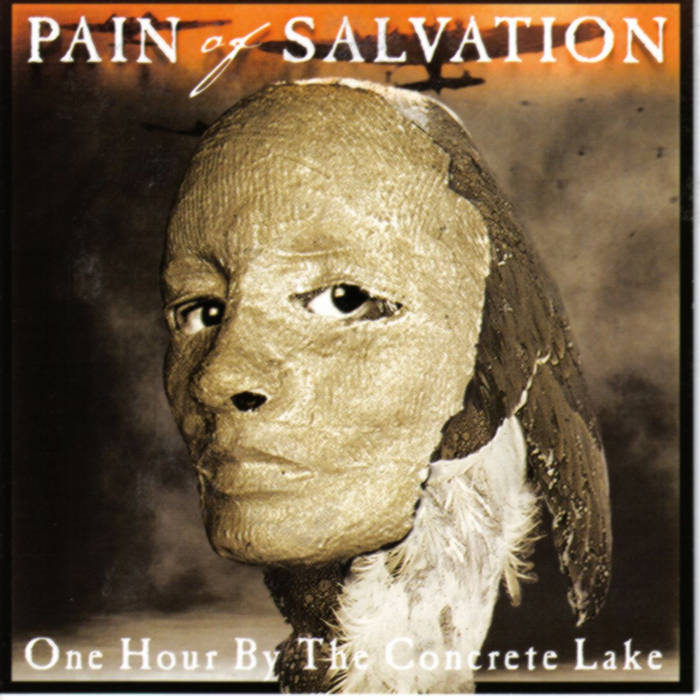
Pain of Salvation - One Hour by the Concrete Lake (1998)
Genres: Prog Metal
I don't feel like doing another track-by-track review today, so I'll just cover the most important stuff. Hearing the actual music kickstart with a beautiful piano metal intro already told me there was a Symphony X similarity that might end up going through the whole album. As a huge fan of Symphony X, I adored the neoclassical piano focus. While I can't say this was "groundbreaking," I was certainly impressed with the healthy upgrade in balance between melody and progression, as well as a totally new sound for the band. On top of which, metallic moments seem to be a bit heavier and more layered, which was an issue for the more metal-oriented songs of the debut. The occasional industrial backdrops also help with that, as well as with more robotic guitar tones and riffs. And of course, there's always a little room for a softer and more contemplative song with some violin attached. But these elements don't often overpower the standard dramatic prog metal aspects, but rather add light influences for the most part. In fact, it's enough to make sure most of these songs feel different enough from each other to almost be different subgenres of prog metal. Handful of Nothing, for example, is quite mechanical in its handling of hardcore punk influence, never really steering into "metalcore," though.
I gotta say, though. Only about half the time the melodies manage to really impress me. For example, a wonderful collective of rhythms takes up the bulk of Home, but in comparison, a track like Water feels a bit empty. Thankfully, the former happens a bit more often. A track like Home is followed by an incredibly proggy yet catchy track like Black Hills, making for an excellent pairing. Hell, I'd say Black Hills even astounded me, managing to be better than the already grand Home. On top of all that, the various sounds and feelings connect well with the emotional focus of the theme, centering around the dystopian devastation and pollution of the world due to man's lack of sympathy for the world around them. The theme isn't very story-based, but it does an excellent job sharing the lead character's feelings of despair. Of course, it goes without saying that it takes a while for that hidden track to really pick up, about four out of six minutes. But once it does, it really does, going into some beautiful avant-garde that perfectly covers what the album went through in a very quick time.
Major improvement over the last. This is considered the weakest of the first four Pain of Salvation albums? I might not agree with people's general consensus on the debut, but the improvement here seems like a very good sign for what's coming next.
93




